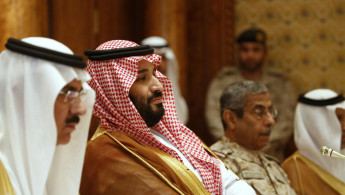He'll be Saudi Arabia's next king, but who is Mohammed bin Salman?
The appointment of the 31-year-old completes a gradual removal of powers from bin Nayef, 57, and marks a dramatic shift in power to a younger generation of Saudis in a Kingdom where more than half the population is under 25.
Born on August 31, 1985, the prince's public profile has grown rapidly since his father ascended the throne, amassing extraordinary power and influence at a breakneck speed.
Nurturing the public profile of a reformer, Prince Mohammed bin Salman is the main proponent of Vision 2030, an ambitious 15-year blueprint launched in 2016 to diversify and modernise the oil-dependent economy.
Among his most prominent positions is chairman of the Council of Economic and Development Affairs, a group of Saudi cabinet ministers who oversee policy on economic and social issues such as education, health and housing.
Bin Salman also chairs a body in charge of state oil giant Aramco, making him the first member of the ruling family to directly oversee the state oil company which had long been governed by technocrats.
More controversially, he also holds the post of defence minister and is the chief architect of Saudi Arabia's devastating two-year war in Yemen, which has killed more than 10,000 civilians.
A law graduate from Riyadh's King Saud University, the Saudi prince has a reputation for being "aggressive and ambitious," Bruce Riedel, a former CIA officer, has said.
As a young prince with multiple portfolios and responsibilities, western diplomats have nicknamed him "Mr Everything".
Last year in a profile for Bloomberg Businessweek, the young prince said he works 16-hour days and draws inspiration from the writings of wartime British Prime Minister Winston Churchill and Sun Tzu's 'The art of war.'
The young prince is seen as close to the US administration of Donald Trump and is thought to be behind Riyadh's ratcheting up of tensions with Iran and its attempted isolation of Qatar.
In a rare and wide-ranging interview in May, the powerful prince said there is no room for dialogue with Iran, accusing the regional rival of seeking "to control the Islamic world."





 Follow the Middle East's top stories in English at The New Arab on Google News
Follow the Middle East's top stories in English at The New Arab on Google News
![Both Hamas and the Palestinian Authority welcomed the ICC arrest warrants [Getty]](/sites/default/files/styles/image_330x185/public/2024-11/GettyImages-2178351173.jpg?h=199d8c1f&itok=TV858iVg)

